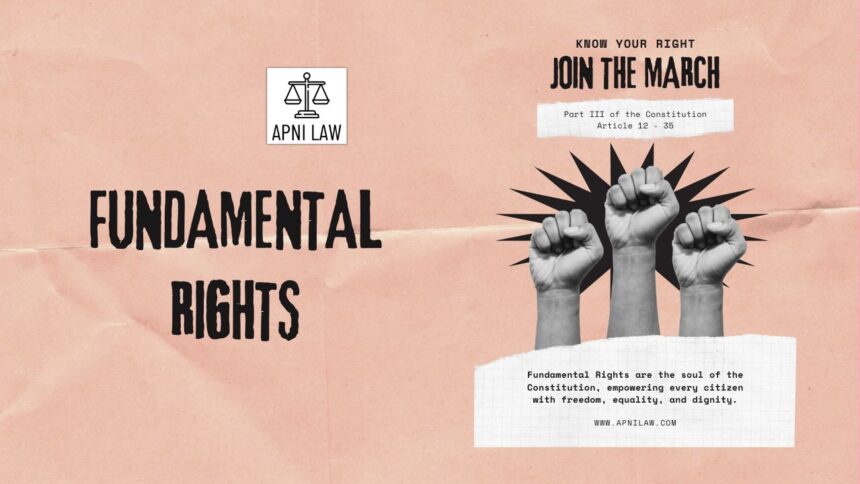Introduction
The framers of the Indian Constitution understood that freedom without dignity would be incomplete. One of the strongest guarantees of dignity lies in Article 23 of the Indian Constitution, which prohibits human trafficking, begar (forced labour without payment), and other exploitative practices. This provision was necessary because exploitation was widespread in colonial India, particularly among marginalized communities and families with limited income. Article 23 turned the fight against exploitation into a fundamental right enforceable in courts, ensuring that every citizen enjoys freedom in its truest sense.
Meaning and Scope of Article 23
Article 23(1) declares that traffic in human beings, begar, and similar forms of forced labour are prohibited, and any violation shall be an offence punishable by law. This provision covers a wide range of exploitative practices, from bonded labour to trafficking of women and children.
The scope of Article 23 extends beyond private exploitation. Even the state cannot force individuals to work without adequate compensation. For example, compelling citizens to perform unpaid services for the government would fall within the prohibition of this Article. The only exception allowed under Article 23(2) is compulsory service for public purposes, such as conscription for national defense, provided it does not discriminate on grounds of religion, caste, class, or gender.
Human Trafficking and Its Impact
Human trafficking involves buying, selling, or transporting human beings for forced labour, sexual exploitation, or slavery-like conditions. It remains one of the gravest violations of human rights. Article 23 targets trafficking directly, recognizing it as an assault on human dignity.
Trafficking in India has often affected vulnerable groups, particularly women and children from marginalized communities. Many are lured with false promises of employment or marriage, only to be pushed into slavery, prostitution, or exploitative labour. By outlawing trafficking under Article 23, the Constitution sets a clear standard that such practices have no place in a democratic society.
Forced Labour and Bonded Labour
Forced labour refers to situations where individuals are made to work against their will, often without fair wages or in degrading conditions. In many rural parts of India, bonded labour became a widespread practice where people with low income borrowed money and were forced to work indefinitely to repay debts.
The Supreme Court expanded the meaning of forced labour through its rulings. In People’s Union for Democratic Rights v. Union of India (1982), the Court held that paying less than the minimum wage amounts to forced labour. Similarly, in Bandhua Mukti Morcha v. Union of India (1984), the Court recognized bonded labour as a violation of Article 23 and directed the government to take action for the release and rehabilitation of workers trapped in such conditions.
These interpretations underline that forced labour is not just about physical compulsion but also about economic coercion, where poverty and lack of opportunities force individuals into exploitative work.
Begar and Exploitation in Indian Society
The word begar refers to labour or service taken without payment, often through coercion. Historically, rulers and landlords compelled villagers to provide free labour for personal or public projects. Article 23 made such practices illegal, recognizing that unpaid labour strips people of their dignity.
Even today, vestiges of such practices exist in disguised forms. Migrant workers, domestic workers, and daily wage earners often face conditions that resemble begar when they are underpaid or denied basic rights. Through Article 23, the Constitution provides legal tools to challenge and punish such exploitation.
Judicial Interpretation of Article 23
The Indian judiciary has played a vital role in giving Article 23 its true meaning. Courts have repeatedly emphasized that the right against exploitation is a fundamental guarantee of dignity.
- In PUDR v. Union of India (1982), the Supreme Court ruled that non-payment of minimum wages amounts to forced labour.
- In Bandhua Mukti Morcha v. Union of India (1984), the Court highlighted the state’s responsibility to identify and rehabilitate bonded labourers.
- In Sanjit Roy v. State of Rajasthan (1983), the Court held that even in famine relief work, labourers must be paid minimum wages; otherwise, it amounts to forced labour.
Through these cases, the judiciary reinforced that Article 23 is not symbolic but enforceable in real-world scenarios.
Exceptions under Article 23
While Article 23 broadly prohibits forced labour, it allows exceptions for compulsory service for public purposes. For instance, the state can require citizens to perform duties related to national defense or disaster relief. However, such service must be applied equally and cannot discriminate based on caste, class, religion, or gender.
This balance ensures that while citizens cannot be exploited, the state can still call upon them in times of genuine national need.
Relevance of Article 23 Today
Despite strong constitutional protections, exploitation still exists in India. Reports of trafficking, bonded labour, and underpaid workers highlight the challenges of enforcement. Globalization and migration have created new forms of exploitation, particularly in the informal sector.
However, Article 23 remains a strong safeguard. Along with laws like the Bonded Labour System (Abolition) Act, 1976 and the Immoral Traffic (Prevention) Act, 1956, it ensures that exploitation is not only morally condemned but also legally punishable.
Frequently Asked Questions
1. What does Article 23 of the Indian Constitution prohibit?
Article 23 prohibits human trafficking, begar, and forced labour. It makes these practices punishable by law to ensure dignity and freedom for all citizens.
2. Does Article 23 allow any exceptions?
Yes, Article 23(2) allows compulsory service for public purposes, such as national defense, provided it does not discriminate based on caste, religion, gender, or class.
3. Why is Article 23 important in modern India?
Article 23 is crucial because exploitation still occurs in different forms, including trafficking, bonded labour, and underpayment of wages. It ensures that dignity remains central to Indian democracy.
Conclusion
Article 23 of the Indian Constitution is one of the most powerful guarantees of human dignity. By prohibiting trafficking, begar, and forced labour, it ensures that freedom is not just political but also social and economic. Through landmark judgments and supporting laws, Article 23 continues to fight modern-day exploitation.
While challenges persist, this Article stands as a reminder that no democracy is complete until every person can live free from exploitation. In protecting the most vulnerable, Article 23 affirms India’s commitment to equality, dignity, and justice.
For any specific query call at +91 – 8569843472








